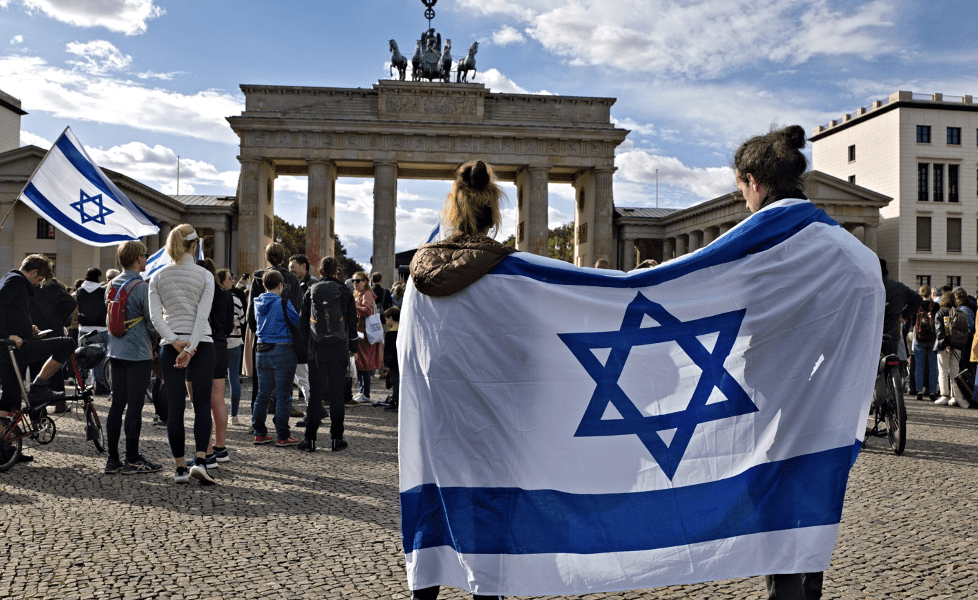Why, Once Again, Israel Will Survive
Editor’s note: The following piece originally ran on the Policy Magazine website. You may access that site below:
The horror of the Hamas rampage across southern Israel triggered so much of the same collective Jewish trauma that the country was founded to prevent future generations from suffering. US Presidential historian and McGill University historian Gil Troy writes of this as an existential moment, and how life in Israel goes on, just as Israel itself will go on.
By Gil Troy
December 21, 2023
On October 7, 2023, Hamas won the first round of its war against decency by thinking outside the box. Having scrutinized Israel’s blinding conceptzia – a Hebrew word meaning bull-headed conventional wisdom — Hamas caught Israel thinking too conventionally. Or, as the New York Times columnist Bret Stephens put it, Hamas had more “strategic imagination” than Israel had strategically imagined. The result was the country’s worst day ever, and a wake-up call for Israel and the West. Fortunately, Israel survived by pivoting. Israelis have been thinking outside the box ever since.
For Israelis, learning what went wrong is for the “day after.” Fighting for their lives, on the other hand, Israelis understand: Win now; assess your mistakes and your politicians later. The West, however, can and should start learning from its mistakes immediately, analyzing its own failed conceptzia.
Within minutes of the Palestinian rampage – which included untrained, “non-combatant” Gazans, happily following the Hamas terrorists — Israelis were already saving Israel. They did it by improvising, if just a little too late.
Three factors saved Israel that day. First, Hezbollah did not attack simultaneously from the north. A pincer movement, especially given how many Israelis live in cities bordering Lebanon, would have killed exponentially more people and would have been much harder to subdue. A second factor is perverse. The apparent glee Hamas took in committing unspeakable crimes distracted them from further expanding their attack. Perhaps every survivor, every mourner for those defiled as they died, can take solace in knowing that every additional, agonizing, minute each victim suffered, slowed the advance, aiding Israel’s counterattack. Most important, when the government failed and the IDF failed, the people of Israel saved themselves. Despite the devastation, it’s miraculous that Israel repelled more than 3,000 terrorists from within, within a day.
We will soon be reading these stories in books and seeing them dramatized in movies. Contrary to popular impression, certain army units scrambled to the front. Some of Israel’s best-trained soldiers faced the firefight of their lives at Kfar Aza, Be’eri and other villages. The hour or two spent reaching the south allowed the enemy to hunker down and set up ambushes, including at most intersections. The cavalry didn’t come for many hours, partially because the cavalry was busy fighting house-to-house.
Simultaneously, reservists, cops, retired soldiers, and hundreds of trained, armed, patriots who make up Israel’s citizens’ army, went to war and made history. They had no commanders. They had no idea what they were facing. But, desperate, they improvised. One soldier I know hitched a ride with some strangers from special units. They defended a key intersection, which they sensed Hamas needed to continue raiding up the coast toward Tel Aviv. As good twentysomethings, they quickly created a WhatsApp group. They spent the day sharing positions and warning one another, as wave after wave of terrorists in “tenders” – pickup trucks — tried breaking through their ambush.
Meanwhile, at the Supernova festival that Hamas turned into a killing field, similar heroics and creative responses saved at least 2700 concertgoers. One police officer led 500 revelers in cars to safety using Google Maps to find a backroad Hamas hadn’t blocked. A Bedouin driver and a neighboring Israeli farmer ferried out dozens more under fire.
An armed citizenry, a trained citizenry, and a creative, heroic, patriotic citizenry, fought terrorist by terrorist, rapist by rapist, to save their country. By nightfall, 1500 terrorist bodies were rotting throughout the Shangri-La they tried ruining – but which will soon be rebuilt and resurrected.
Even as Israelis started using the Hebrew word ‘kiyoomi’, meaning existential, to describe the Hamas threat, even as they wallowed in tragedy after tragedy, they burst open a pathway out of this trauma vortex.
This extraordinary counterattack was critical ideologically and psychologically, not just militarily. Even as Israelis started using the Hebrew word ‘kiyoomi’, meaning existential, to describe the Hamas threat, even as they wallowed in tragedy after tragedy, they burst open a pathway out of this trauma vortex. During pogroms, no one came to save Jews. During the Holocaust, the mass slaughter continued for years. On October 7, every act of Israeli resistance shifted the narrative arc from millennia of Jewish suffering to another chapter in the Zionist quest to build a Jewish homeland. That blue-and-white story is no fairy tale. It is potted with enemies, failures, tragedies. But it is also a story of fighting your enemies when necessary, and rebuilding, renewing, healing, and dreaming, always.
As of this writing, IDF High Command claims Hamas is in tatters. Many key terrorist commanders are dead. The IDF seized a staggering amount of weaponry and degraded an even more overwhelming military infrastructure. But now comes Israel’s unconventional thinkers’ greatest test — how not to lose the war you seem to have won by blowing the peace.
Israel needs a diplomatic reset and the West does too. Israelis cannot retreat to October 6th thinking, no matter how much pressure they endure. Making political mistakes is inevitable, excusable; refusing to learn from them is unconscionable.
In short, before telling Israel what not to do, propose realistic plans suggesting what Israel can do, to defend itself and its citizens. Defending the nation is an army’s primary moral responsibility – and central mission. In 2014, a Deutsche Welle reporter interviewed Israel’s legendary leftist Amos Oz about Israel’s Hobson’s choice regarding a ground offensive against Hamas in Gaza. Turning the tables, Oz asked “What would you do if your neighbor across the street sat down on the balcony, put his little boy on his lap and started shooting machine-gun fire into your nursery?”
Similarly, when imagining a “day after” scenario with a degraded Hamas, politically and militarily, Israel – and the world – must proceed cautiously. The Palestinian Authority is so weak, corrupt, and hated by most Palestinians, that the international community loses credibility with Israelis and Arabs every time some diplomat proposes the PA take over Gaza. Even less attainable is a Saudi and UAE-based protectorate. The Saudis and their allies are too shrewd to put themselves in the middle. Perhaps some local leadership, leaning into Gaza’s clans, some of whom resisted Hamas, might work.
Westerners should understand that while Israelis are not all good and Palestinians are not evil, Hamas is an evil, anti-Semitic, anti-Western force. Two months after this horror, Israelis remain dazed, in mourning, still, as I write, wondering about 129 fellow citizens being held hostage, tortured, sexually violated. But, for all the sorrow, the burials, the loss, Israel’s refusal to be defeated keeps triumphing.
Amid this, the worst eight weeks of our lives, we Troys enjoyed one of the best weeks in our lives – when our eldest son and his fiancée decided to stick to their pre-October 7th plans and get married November 26. Planning this wartime wedding was the most insane thing we – mostly meaning the two moms and the young couple – ever did. My son serves as an officer in the north, with two other siblings deployed, too. It’s hard to care whether the tables are round or square, the tablecloths yellow or white, when young heroes are being buried, and innocent bodies are still being identified, having been burned and disfigured so badly. But such decisions had to be made, so the party could go on.
Under the wedding canopy, two first cousins from the Gaza corridor, who endured hours in their respective safe rooms, prayed for the evacuees: the 150,000 Israelis the world ignores who cannot sleep in their homes until the IDF neutralizes the Hamas and Hezbollah threats. My son’s commander, from Sderot, who lost 10 friends and relatives, and knows five hostages, prayed for the kidnapped hostages. Having acknowledged our pain, we and our 450 guests then danced, danced, danced.
We will never stop defending ourselves when necessary and rebuilding, renewing, and dreaming, always. And we will never, ever, stop dancing.
Professor Gil Troy is a Distinguished Scholar in North American History at McGill University. The author of numerous books on the American presidency, he is, most recently, editor of the three-volume set, Theodor Herzl: Zionist Writings, the inaugural publication of The Library of the Jewish People.


